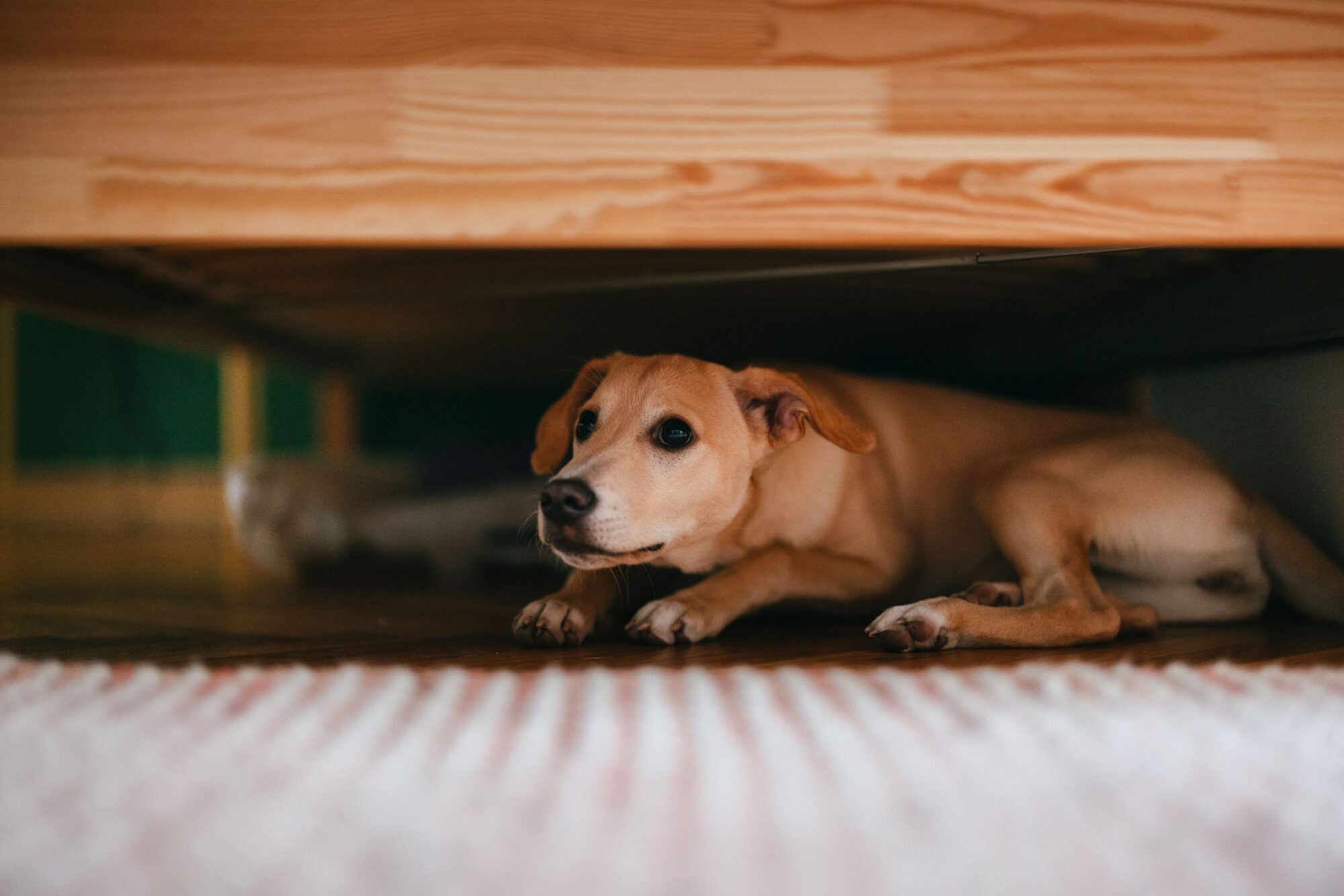Addressing Common Pet Phobias Like Thunderstorm or Fireworks Anxiety

Thunderstorms and fireworks create a lot of anxiety for pets. Unfortunately, we have no control over when they will occur, but there are things we can do to help our pets through them. This guide will help you address these common pet phobias to help your furry friends feel their best.
First Things First
The majority of cats and dogs react to loud noises and unpredictable stimuli. In fact, these responses are critically important and have the potential to prevent all sorts of calamities. When acute stress is unmanaged or unsupported, however, chronic conditions can develop.
Signs of Pet Anxiety
Certain pet behaviors like hiding, crying, whining, shaking, trembling, or excessive panting all signal feelings of fear. Prolonged expressions of fear can be damaging in the long-term. Untreated anxiety can suppress the immune system, which leaves pets vulnerable to recurring infection, diminished blood circulation, and more.
While the effects on physical health are well known, it is the psychological damage caused by chronic stress that is harder to treat in the long run. Untreated, a pet’s anxiety can intensify until they are battling a full-blown phobia.
Noise Aversion and Fear
Most animals react fearfully to loud noises like fireworks or thunder. If the levels of stress and fear compound with time and increased frequency, pets may start to show signs of anxiety long before the actual event occurs. Drops in barometric pressure can send pets into hiding, and those left outside during storms or fireworks may respond by fleeing. Catastrophic results from escape attempts include vehicular accidents, falls, permanent loss, severe injury, and property damage.
How to Help Your Pet
Learned fears can be reversed in many ways. Some pets can unlearn an anxious response if they are lovingly supported. Depending on the levels of stress and fear shown by your pet, you can apply the following tactics to support their needs:
- Bring them inside the home as soon as you realize a storm is coming, or fireworks are scheduled. Watch the weather report closely and monitor events in your neighborhood.
- Set up a quiet room with closed windows, dim light, white noise, and a few of their favorite things (bedding, toys, treats, and freshwater)
- Stay with them if they appear distressed or anxious.
- Only leave the room together when the noise is over.
- Never scold or punish your pet for feeling the way they do.
Some owners find success with desensitization techniques, including:
- Gradually expose your pet to the fear-inducing stimuli while giving them a chance to forge a new response to it.
- Play a recording of the storm of fireworks sound while encouraging them to play, enjoy a treat, or otherwise relax with you.
- This new association can be carefully introduced every day for about 10 minutes at a time until your pet shows improved trust and confidence.
Calming Products for Pets
Natural pheromone products can create feelings of well-being and comfort in distressed pets. Wraps or shirts that gently apply pressure to the pet’s torso are also effective. In serious cases of pet anxiety, prescription medications can decrease the debilitating levels of fear and stress.
Our veterinarians and support staff know that it can be challenging to handle pet anxiety. Please call us at (916) 726-2334 with any questions or concerns. We look forward to helping your pet at Sunrise Boulevard Animal Hospital.
